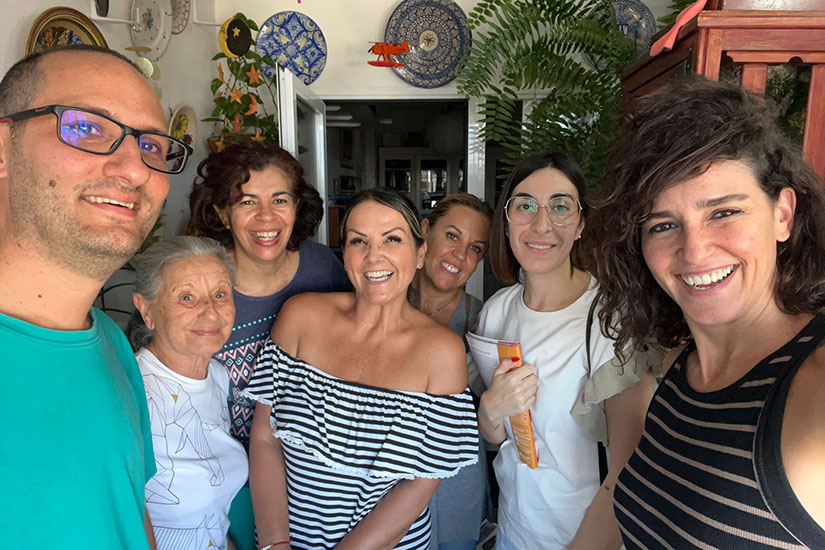Resources for the introduction of SGI-Spain’s discussion meetings
The ultimate path in the study of Buddhism is to willingly give one’s life to repay the debt of gratitude to one’s country. Therefore, what I am doing is not for my own sake.
↳ Tentative translation of GZ (new edition.), page 853. Because the end of the letter is missing, the recipient is uncertain, but from the content it is thought to be related to “Letter to the Lay Priest Yadoya” (WND-2, 312), and therefore addressed to Yadoya Mitsunori.
These words express the Daishonin’s consistent conviction throughout his life. In other writings, he declares: ‘I say all this solely for the sake of the nation, for the sake of the Law, for the sake of others, not for my own sake,’[1] and ‘I do not speak out for my own sake, but for the sake of the gods, for the sake of the ruler, for the sake of the nation, and for the sake of all living beings.[2]
.
The Daishonin was a great person defined by selflessness.
.
He risked his life by vehemently remonstrating with the authorities, not for his own sake but for the security and happiness of the people and to build a peaceful society. At the same time, (…) he embraced each of his disciples with the utmost warmth and concern.
.
Both of these actions are expressions of compassion. They embody the spirit of the Lotus Sutra in action and the struggle to establish the correct teaching for the peace of the land. In addition, in his efforts to protect the people, the Daishonin repudiated erroneous teachings that went against the true spirit of Buddhism. And he engaged in a great struggle of words, sharply criticizing the nation’s leaders who ignored the people’s suffering. He persisted tirelessly in this great cause based on the Buddhist teachings. (…)
.
The relationship of mentor and disciple in Buddhism is to embrace the same great ideals and take action together while walking the same path. (…) By sharing that vow with others, we joyfully expand our circle of friendship, forge bonds of trust, and cause our own and others’ dignity to shine.
.
(…) [By] exerting ourselves in bodhisattva practice, we break through the shell of ego, our lesser selves. We establish lives based on our true, strong, greater selves and live them dauntlessly. We can accumulate everlasting treasures of the heart and lead fulfilling, triumphant lives with assurance and joy.[3]
In the same lecture from which the above quote and paragraphs have been taken from, Daisaku Ikeda mentions the importance of youthful commitment by stating:
Nanjo Tokimitsu, who stood up as a young disciple of Nichiren Daishonin, was later pressured by relatives to discard his faith in the Lotus Sutra. In “The Workings of Brahma and Shakra” (WND-1, 798–801), a letter dated May 1277, the Daishonin reminded the embattled Tokimitsu that persecutions arising from “even greater hatred and jealousy than in Shakyamuni’s lifetime”[4] were the inescapable destiny of those who embrace the Lotus Sutra in the Latter Day. And he urged his disciple to remain steadfast in the face of onslaughts by devilish functions.
.
Tokimitsu received instruction from the Daishonin and developed himself year after year, fighting in a manner befitting a youthful successor of his mentor. (…)
.
Young people who learn of this sure way to indestructible happiness can confidently walk the noble path of contributing to the betterment of their societies. They can live the days of their youth with clear direction, purpose, and conviction. There is no greater good fortune.
.
Cherishing a grand vision and sparing no effort to achieve it, Soka youth are treasures; they will play a pivotal role in shaping humanity’s future. The world’s hopes for you are greater than ever.[5]

What was the victory of this discussion group from Tenerife? Surely a thorough answer to the question would show that it has not been only one, but a pile of victories which are too many to mention in the space here available. But we take the opportunity to highlight at least one of them, which is a beautiful and great shared achievement. In line with one of the main themes mentioned in this magazine’s previous issue, this group has provided an example of the phrase “‘Myo’ means to revive, that is, to return to life.”[6] Congratulations!
Mailbox: prensa@ediciones-civilizacionglobal.com
[1] ↑ The Rationale for Writing “On Establishing the Correct Teaching for the Peace of the Land”, in WND-1, page 164.
[2] ↑ Letter to Hojo Tokimune in WND-2, page 315.
[3] ↑ Extract from the section “Estudio” of this issue
[4] ↑ LSOC10, 203.
[5] ↑ Extract from the section “Estudio” of this issue.
[6] ↑ The daimoku of the Lotus Sutra, in WND-1, page 149.

